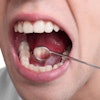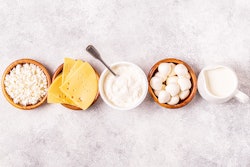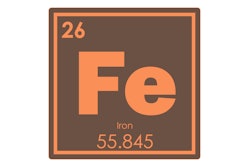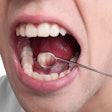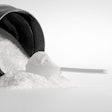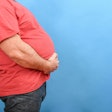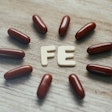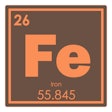Patients with periodontitis receiving conventional treatment who took probiotics and followed a tailored anti-inflammatory diet experienced improvements in gum disease, according to a study recently published in BMC Oral Health.
The combination not only promoted healing in the gums, but those who followed a high-protein, high-fiber, low-sugar diet and took probiotics saw significantly greater improvements in probing depth (PD) and clinical attachment loss (CAL), the authors wrote.
“It is recommended that probiotics and balanced nutrition be integrated into a holistic approach in the treatment of periodontitis,” wrote the authors, led by Feray Çağiran Yilmaz of Dicle University in Turkey (BMC Oral Health, July 31, 2025, Vol. 25, 1287).
To examine the effects of probiotics and diet on periodontal health, researchers conducted a pilot study with 120 women ages 20 to 60 who had periodontitis but no systemic diseases. Some of the women received conventional treatment only, another group received treatment plus probiotics, and the third group received treatment with both probiotics and a personalized diet, they wrote.
The probiotics were chosen for their ability to support gum healing by balancing oral and gut microbiota and reducing inflammation. The personalized diet emphasized fiber-rich and anti-inflammatory foods like vegetables, whole grains, yogurt, and kefir while limiting sugar, refined carbohydrates, and processed foods. Clinical outcomes were measured using PD and CAL.
After six weeks, the most significant improvements in PD and CAL were seen in the diet plus probiotic group, with PD decreasing from 5.3 mm to 3.1 mm and CAL from 5.6 mm to 3.2 mm. The changes were statistically significant (p < 0.001), with the group showing a 41.5% reduction in PD and 42.7% in CAL, they wrote.
In comparison, the probiotic group saw improvements of 30.8% in PD and 30.4% in CAL, while the control group showed more modest gains, 17% in PD and 12.7% in CAL. Additionally, analysis revealed that a higher protein and fiber intake was significantly associated with better outcomes (p < 0.05), while greater sugar and carbohydrate consumption was linked to worse periodontal healing.
The study, however, had limitations, including that no men were in the study. Therefore, the findings may not be generalized, the authors wrote.
“This study offers promising preliminary findings and may contribute to the development of nutrition-based strategies for the treatment of periodontal diseases in future research,” they concluded.

